Accomplished, Bright, Committed, Determined ………. one could exhaust all the letters of the alphabet in finding appropriate words to describe Jamaica’s pre-eminent public intellectual, Professor Verene Shepherd.
Academic historian, teacher, author, radio show host, reparatory Justice campaigner and United Nations Special Committee member, are just some of the multiple roles for which this outstanding and internationally respected Jamaican historian and gender specialist is best known.
Establishing her Pedigree
It is, of course, as an academic historian and author on which Prof Shepherd’s prodigious reputation has been built. She is, arguably, the Caribbean’s leading historian(certainly its best known currently) with no fewer than six, single-authored books, five co-authored; ten edited/co-edited; over thirty referenced academic journal articles and over thirty-five book chapters, not to mention the hundreds of papers, speeches and presentations delivered at various fora around the world. Verene is sought after internationally to give speeches at academic conferences, but in spite of the high demand for her scholarship she has never contemplated jobs in the USA or UK. She has earned the respect of colleague historians by being elected as President of the Association of Caribbean Historians (ACH). When she was appointed a full professor in the History Department of The University of the West Indies (UWI) at Mona, she became only the second woman to achieve that distinction, some 40 years after the legendary Elsa Goveia.Today, she heads the recently created Institute for Reparations Research at the University of the West Indies and before that was University Director of the Institute of Gender and Development Studies (IGDS).
But Prof. Shepherd is no cloistered or ivory-tower academic. Unknown to many, Verene began her professional life as a teacher at Shortwood Teachers College in Kingston before matriculating to the UWI and then on full scholarship to read for her doctorate at Cambridge University in the UK. It is therefore no surprise that her teaching life has extended beyond the university lecture and tutorial rooms to the schools, through textbook writing, curriculum development (CSEC /CAPE) and conducting workshops for teachers and students. She was well prepared for these roles having taught at various times at Jose Marti, Merle Grove, St. Mary High, Hillell and Ardenne High schools.
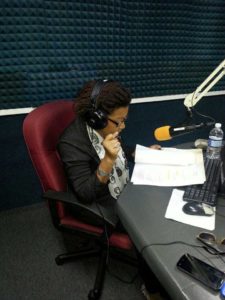
It is her weekly radio programme, “Talking History” on Nationwide 90 FM which was first aired in 2010 that has made her a household name in Jamaica. Through this programme, Prof Shepherd has almost single-handedly kept alive and even made exciting the subject of history both for students and for laypersons alike. She gives credit to KaBu Maat Kheru of radio station Irie FM with whom she had stints co-hosting segments of the “Running Africa” programme dating back to 2006. It was the association with KaBu that opened Verene’s eyes to the possibilities of radio in re-educating Jamaicans about their history.
Public Historian
Taking on the mantle of public historian and by extension unapologetically and consistently championing the call for reparatory justice is a natural part of Verene’s psyche. She recalls that at a very young age she became acutely conscious of being regarded as less than equal at school and in the public sphere on account of the low status accorded to persons living in the village (ironically called ‘Africa’) in which she grew up in St. Mary parish.
The unique contribution of Prof. Shepherd’s public advocacy is in the exploding of historical myths, changing public perspectives on various aspects and events of Jamaica’s slavery and colonial past, and most importantly in what she describes as ‘language deconstruction’, that is, changing the way we write and speak about ourselves. So for Verene Shepherd, Jamaicans are not descendants of ‘slaves’ which suggests a passive mentality but rather descendants from the condition of ‘enslavement’ – a condition of bondage over which they had no control and against which they relentlessly resisted and with purpose. Similarly, Morant Bay in 1865 was no ‘Rebellion’ as British historians would have us believe, but an organized act of protest against colonial neglect. And, Sam Sharpe’s campaign in 1831 was not simply a ‘war’ but a war of emancipation as later outcomes would prove.
In this regard she has been outspoken and fearless in challenging institutions and even governments on issues that she deems to be hangovers from Jamaica’s colonial past. That her advocacy has not gone unnoticed, is attested to by an anecdotal aside at the unveiling of the Louise Bennett statue in Gordon Town, St. Andrew. Observing Prof Shepherd in the audience, Prime Minister Holness paused during his address to caution himself in making certain assertions lest he be brought to book for historical accuracy by Prof Shepherd!
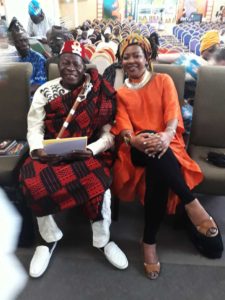
In her efforts to liberate Jamaicans from their colonial mindset, Verene has led the way by personally embracing her African roots. Privately, she has been able to trace through DNA tests a firm connection with the Tikar people of Cameroon in West Africa. Cameroon was originally a part of what is today’s Nigeria and she reveals that some 49% of Jamaicans should be able to trace their heritage to Nigeria and another 38% to Ghana.
“Poster Child of African Fashion”
In her public appearances locally and internationally, Verene’s , at times spectacular African-inspired ensembles not only consistently demonstrate a more than token embrace of that part of her heritage, but they also reveal a highly personalized fashion sensibility which has led one commentator to describe her as the “poster child of African fashion” – a designation she wears with great panache and aplomb.
Gender Bias in the Academy
Verene’s climb to the pinnacle of academic achievement and international recognition has not been without its disappointments and roadbloacks. It is mind-boggling to conceive that a woman who has, throughout her 30 years as a faculty member of the UWI consistently out-performed her peers in academic output, has never held a top administrative post either as head of her own history department or as Dean of the faculty in which it falls. As someone who by nature does not ‘cry over spilt milk’, Verene is philosophical about what could have been and is happy in the knowledge that she could not have produced the volume of path-breaking research work and contribution to scholarship and public education described above had she been ‘distracted’ by being mired in administrative duties. Neither does she impute motive, although it is worthy of note that her signal achievement during her tenure as University Director of the IGDS was to develop a University gender policy for the first time in the institution’s history. While her particular case is an extraordinary one, she is quick to acknowledge that, with one exception, headship of the Department of History has always been a male. The observation of male bias within the institution has also been alluded to by Dr Leith Dunn, Head of the IGDS at the Mona campus who observed in a newspaper report that in spite of the fact that the institution had a gender policy no faculty of the UWI, Mona has a female dean.
As an activist scholar, Verene would have been influenced by others from an earlier generation as well as some of her contemporaries. Among the trailblazing scholars and activist historians who influenced her, Verene singles out Walter Rodney, Lucille Mathurin Mair, Kamau Brathwaite and current UWI Vice-Chancellor, Hilary Beckles – perhaps the only one of her contemporary colleagues who has outpaced her in scholarly output and with whom she has co-authored several books.
Family Counts
Now that her two sons, Dean and Duane are grown men, Verene looks back and acknowledges the extraordinary level of support she has had and continues to receive particularly from her family and especially from her husband of many years (Verene’s secret) Bramwell. For her, Bramwell is the reverse of the strong woman behind the successful man, noting that she could not have taken up many of the opportunities that have opened up for her without his firm support.
The Next Phase
These days Verene throws her considerable energy behind the campaign for reparatory justice as Deputy Chair of the CARICOM Commission on Reparations and Co-Chair of the Jamaican Commission on Reparations. Internationally,she sees her current work as an elected member of the United Nations Committee on the elimination of Racial Discrimination (CERD) as an opportunity to offer her expertise in the area that is a lifelong passion. Like the campaign for reparation, she has embraced the CERD not as a moral cause but as a fight for social justice.
VERENE’S FACT FILE
Current Title: Professor of Social History
Hails from : Parish of St. Mary and alumnus of St. Mary High School
Academic : PhD University of Cambridge, MPhil University of the West Indies, B.A. University of the West Indies
Currently serving as:
- Elected member of the UN Committee on the Elimination of Racial Discrimination,
- Head, Centre for Reparation Research,
- UWI Vice-Chair, CARICOM Reparation Comm. Co-Chair Jamaica Reparation Commission
- Host of “Talking History”, Nationwide 90 FM
Honours and Accolades:
- Jamaican national honour, Order of Distinction (OD) Commander Class (2013)
- Vice Chancellor’s Award for Excellence in Public Service (2016)
Family :
- Married to Bramwell with two sons, Dean and Duane
Firsts :
- First Jamaican and CARICOM member to be elected to the United Nations Committee for the Elimination of Racial Discrimination (CERD)
- First woman to appointed to Chair the Jamaica National Heritage Trust
- First woman to be made a full professor in the Mona History Department in 40 years.
Citations:
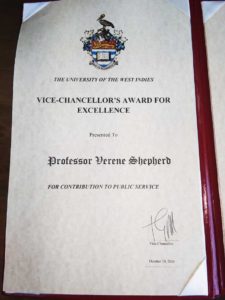
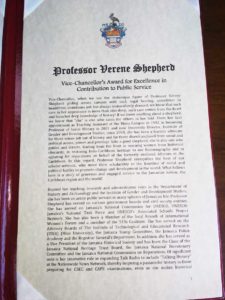
Books BY Verene Shepherd
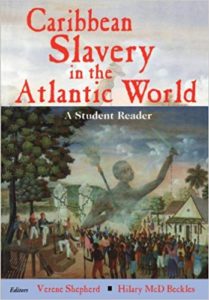
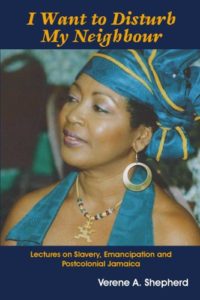
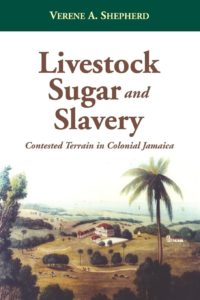
To Access More of Verene Shepherds Books, Visit ianrandlepublishers.com


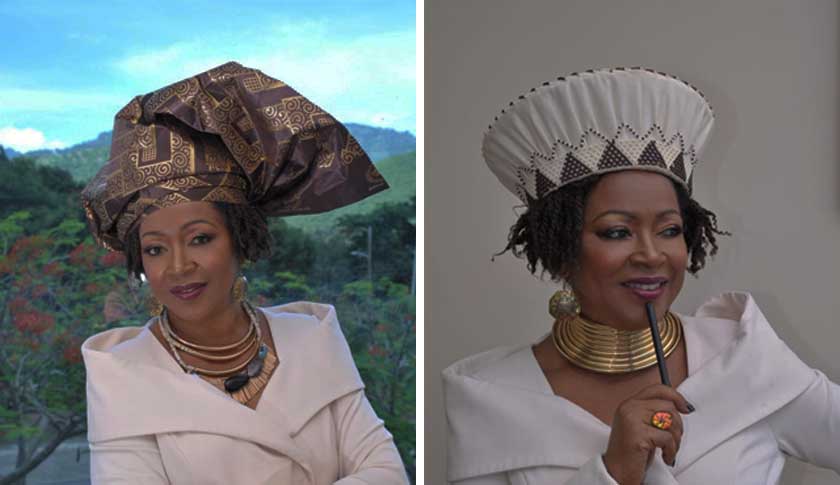



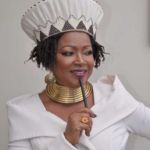

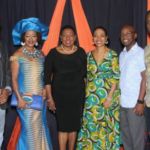







3 comments
Steve Talbot
I began reading her literature the last two years as I pursue a MA in Transatlantic slavery. Brilliant woman!
A great intellectual. Proud of you professor Verene Shepherd!
Professor Verene has done St. Mary High School and Jamaica really really proud.
Comments are closed.